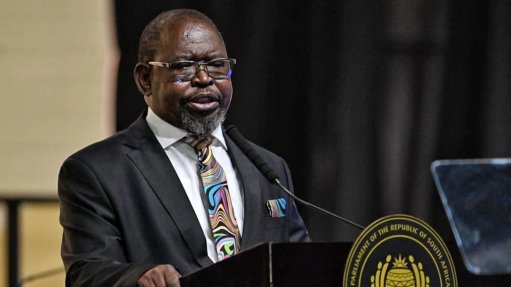Carbon offset regulations could have major financial implications for businesses
Draft regulations on carbon offsets, which were published for comment by the National Treasury on June 20, under the Carbon Tax Bill, are due to come into effect in early 2017 and could have significant financial implications for businesses in South Africa, according to legal services firm Cliffe Dekker Hofmeyr.
The window for commentary on the bill closed at the end of July.
The proposed carbon offsets will give effect to one of a number of tax allowances in the Carbon Tax Bill by lowering companies’ tax liabilities through the establishment of a carbon offset scheme for South Africa.
However, experts from Cliffe Dekker Hofmeyr’s environmental practice caution that there are a number of potential obstacles that will need to be overcome before the system can be fully implemented.
Using the proposed scheme, entities will be able to reduce their taxable emissions by between 5% and 10% of their total greenhouse-gas (GHG) emissions by investing in carbon reduction offset projects.
Crucially, this involves allowing an entity to reduce its carbon tax liability by investing in offset projects of other entities that reduce, avoid or sequester GHG emissions, at a lesser cost than would be required to invest in mitigation options in its own operations.
Cliffe Dekker Hofmeyr environmental practice director Sandra Gore says the procedure involved in developing and validating offset projects though independent specialists and registering them on international registries under existing offset schemes and methodologies is costly and time consuming. “The scheme proposes that a South Africa-specific methodology is developed. This may streamline the lengthy procedure and reduce the costs of offset projects.”
However, she notes that the methodology still needs to be developed under the onerous requirements of the 2015 Paris Agreement, which deals with GHG emission mitigation and was opened for signature in April. “It is unlikely that the procedure will be simplified and costs will be reduced,” says Gore.
The proposed carbon offsets in the initial stage will apply to offset projects approved by existing international carbon offset standards and structures, including the Clean Development Mechanism (CDM) contained in the 1997 Kyoto Protocol – an agreement under the United Nations Framework Convention on Climate Change (UNFCC). The Kyoto Protocol is the predecessor to the Paris Agreement, which is also an agreement under the UNFCC, which was opened for signature on April 22. CDMs may be used until 2020 in terms of the Kyoto Protocol.
In addition, the Verified Carbon Standard and the Gold Standard also apply.
The scheme, she says, provides in the initial stages that offset projects must still be verified according to the costly, technical and lengthy processes under the existing offset schemes.
Offset projects will also have to meet South Africa-specific requirements under the proposed scheme. In particular, they must be located in South Africa, not be subject to carbon tax under the Carbon Bill and satisfy local eligibility criteria, including contributing to meeting South Africa’s development priorities.
Cliffe Dekker Hofmeyr environmental practice associate Valencia Govender says the proposed scheme will primarily centre on sectors and technologies not directly subject to carbon tax. For example, projects in energy efficiency (excluding projects claiming an energy efficiency tax incentive), waste, public transport and transport energy efficiency, agriculture and forestry. “It is envisaged that the list could expand as the proposed scheme develops,” she says.
A designated national authority within the Department of Energy (DoE) will administer the proposed scheme and manage the registration of offset projects on a South African registry. This will include assessing projects to ensure they comply with local eligibility criteria prior to implementation or transfer of certified emission reductions (CERs) to the South African registry, registering projects and issuing offset certificates.
Gore notes that creating a carbon registry in South Africa will require the DoE to implement significant institutional capacity and data management systems. “It appears unlikely that this will be in place by early 2017.”
The scheme will apply to all offsets generated after January 1, 2017 – the intended date for implementation of the scheme.
CERs generated by existing offset schemes prior to January 1, 2017, can be used to offset carbon tax liabilities if the CERs are transferred from an international registry to the South African registry within 12 months of implementation of the carbon tax.
Article Enquiry
Email Article
Save Article
Feedback
To advertise email advertising@creamermedia.co.za or click here
Press Office
Announcements
What's On
Subscribe to improve your user experience...
Option 1 (equivalent of R125 a month):
Receive a weekly copy of Creamer Media's Engineering News & Mining Weekly magazine
(print copy for those in South Africa and e-magazine for those outside of South Africa)
Receive daily email newsletters
Access to full search results
Access archive of magazine back copies
Access to Projects in Progress
Access to ONE Research Report of your choice in PDF format
Option 2 (equivalent of R375 a month):
All benefits from Option 1
PLUS
Access to Creamer Media's Research Channel Africa for ALL Research Reports, in PDF format, on various industrial and mining sectors
including Electricity; Water; Energy Transition; Hydrogen; Roads, Rail and Ports; Coal; Gold; Platinum; Battery Metals; etc.
Already a subscriber?
Forgotten your password?
Receive weekly copy of Creamer Media's Engineering News & Mining Weekly magazine (print copy for those in South Africa and e-magazine for those outside of South Africa)
➕
Recieve daily email newsletters
➕
Access to full search results
➕
Access archive of magazine back copies
➕
Access to Projects in Progress
➕
Access to ONE Research Report of your choice in PDF format
RESEARCH CHANNEL AFRICA
R4500 (equivalent of R375 a month)
SUBSCRIBEAll benefits from Option 1
➕
Access to Creamer Media's Research Channel Africa for ALL Research Reports on various industrial and mining sectors, in PDF format, including on:
Electricity
➕
Water
➕
Energy Transition
➕
Hydrogen
➕
Roads, Rail and Ports
➕
Coal
➕
Gold
➕
Platinum
➕
Battery Metals
➕
etc.
Receive all benefits from Option 1 or Option 2 delivered to numerous people at your company
➕
Multiple User names and Passwords for simultaneous log-ins
➕
Intranet integration access to all in your organisation


















